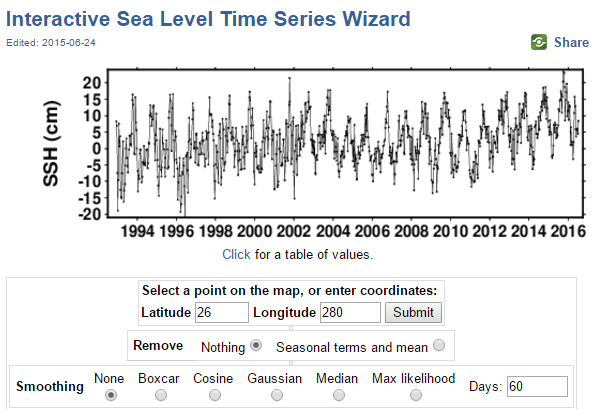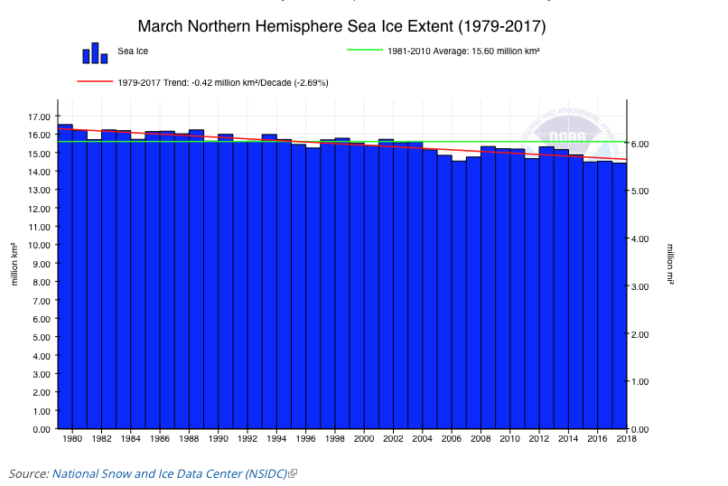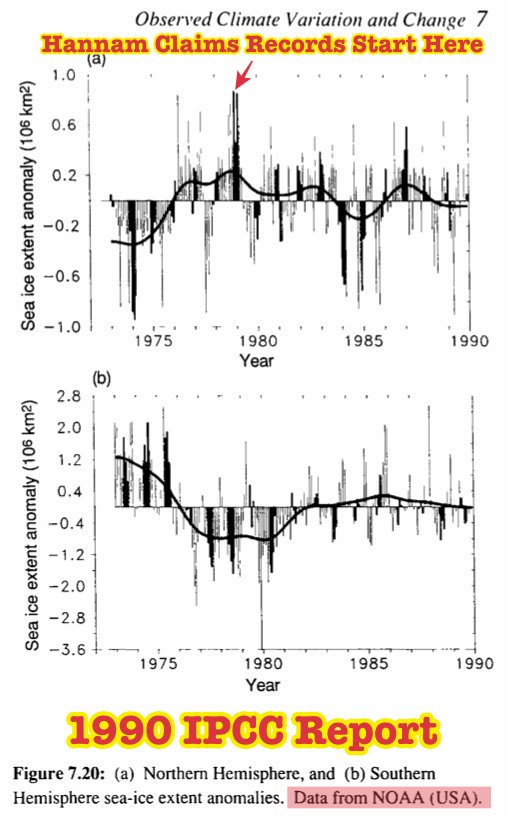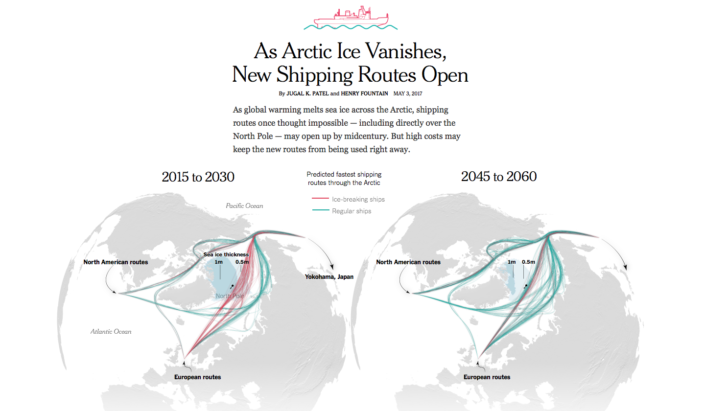Analysis Debunks Absurd Sea Level Rise Claims About South Florida
Guest post by David Middleton
Sea level rise isn’t something that only future generations will have to deal with. It’s already causing significant challenges. If you doubt that, check out what’s happening in Miami right now.
…
“Sea levels in South Florida could rise up to two feet over the next four decades”… No they can’t and this is not happening right now.
For sea level to rise “two feet over the next four decades,” it would have to accelerate to the pace of the Holocene Transgression:

Projected sea level rise through 2100 AD. Two feet of sea level rise over the next four decades would require a pace even faster than that required for 1 meter (~3 feet) of sea level rise by the end of this century. https://wattsupwiththat.com/2013/12/21/oh-say-can-you-see-modern-sea-level-rise-from-a-geological-perspective/
It would take an average rate of sea level rise nearly twice that of the Holocene Transgression for sea level to rise more than 1.5 meters (~5 feet) over the remainder of this century.
Sea level isn’t behaving any differently than it has throughout the Holocene.
 Sea level was 1-2 meters higher than it currently is during the Holocene Highstand. All of the sea level rise since 1700 is insignificant relative to the natural variability of Holocene sea levels.
Sea level was 1-2 meters higher than it currently is during the Holocene Highstand. All of the sea level rise since 1700 is insignificant relative to the natural variability of Holocene sea levels.
Sea level rise in the Miami area is not accelerating and it is rising at a rate of about 1 foot per century.

The mean sea level trend is 2.39 millimeters/year with a 95% confidence interval of +/- 0.43 mm/yr based on monthly mean sea level data from 1931 to 1981 which is equivalent to a change of 0.78 feet in 100 years. https://tidesandcurrents.noaa.gov/sltrends/sltrends_station.shtml?stnid=8723170

The mean sea level trend is 2.40 millimeters/year with a 95% confidence interval of +/- 0.15 mm/yr based on monthly mean sea level data from 1913 to 2016 which is equivalent to a change of 0.79 feet in 100 years. https://tidesandcurrents.noaa.gov/sltrends/sltrends_station.shtml?stnid=8724580

The mean sea level trend is 3.63 millimeters/year with a 95% confidence interval of +/- 0.48 mm/yr based on monthly mean sea level data from 1971 to 2016 which is equivalent to a change of 1.19 feet in 100 years. https://tidesandcurrents.noaa.gov/sltrends/sltrends_station.shtml?stnid=8723970
The satellite data indicate virtually no statistically significant sea level rise in the Miami area:

CU Sea Level Research Group University of Colorado http://sealevel.colorado.edu/content/interactive-sea-level-time-series-wizard?dlat=26&dlon=280&fit=n&smooth=n&days=60
I intentionally retained the “seasonal terms and mean” and did not smooth the data because the seasonal variability is …
Video: ‘Journalists Are Key Players In The Global Warming Scam’
…The New York Times warms to climate change skepticism
To the consternation of alarmists, New York Times op ed writer Bret Stephens openly questioned the “consensus” that has demanded uniform acceptance without question of the global warming/climate change orthodoxy. As CFACT policy analyst Larry Bell reports, Stephens asserts that ordinary citizens have a right to be skeptical of an “overweening scientism.” He wisely warns us to remember that “history is littered with the human wreckage of scientific errors married to political power.”
Source: The New York Times warms to climate change skepticism…
CJR Finds Scientific Opposition to Linking Hurricanes and Global Warming
By Aly Nielsen |
A surprising report from the George Soros-funded Columbia Journalism Review (CJR) revealed several scientists oppose the way the media have tried to blame hurricanes on man-made climate change.
CJR used the Freedom of Information Act (FOIA) to acquire emails “sent from or received by six hurricane researchers or forecasters” which included the terms “global warming” or “climate change.” The May 2, article written by Rob Verger indicate CJR was looking to see how scientists talked to the media about Hurricane Alex and “whether climate change should be blamed.” Verger said the emails showed a “heated online discussion among scientists.”
Because it was far earlier than a typical hurricane, Alex drew attention to itself and media climate alarm. The Washington Post described it Alex as “rare,” and turned to Weather Underground’s Jason Masters who tried to make the global warming point.
“It is unlikely that Alex would have formed if these waters had been close to normal temperatures for this time of year,” Masters wrote (and the Post quoted).
Christian Science Monitor was even more blunt, asking in its headline “Is climate change to blame for rare January hurricanes?”
“With the unusual occurrence of Hurricane Alex as an out-of-season hurricane, there have been a couple of meteorologists stating to the media that manmade global warming helped to cause the hurricane. Such statements are not, in my opinion, factual.” National Hurricane Center science and operations officer Chris Landsea said in a Jan. 18, 2016, email acquired by CJR.
Landsea told CJR he was similarly disturbed by how strongly former vice president Al Gore linked Hurricane Matthew to climate change in October 2016. Gore’s claims made Landsea “cringe, because there’s some links but it’s much much more subtle than he is insinuating.”
Hurricane Matthew wasn’t the only thing Gore has gotten wrong. After his climate alarmist film An Inconvenient Truth was released in 2007, a British court identified at least eleven material falsehoods, including attributing Hurricane Katrina to climate change.
In promotional footage of Gore’s follow up film, An Inconvenient Sequel, slated for July 2017, release Gore twisted and rewrote his earlier claims about what would cause massive global flooding including flooding of New York City in order to try to claim Hurricane Sandy proved him right.
While CJR’s report cited stories written by The Washington Post and Christian Science Monitor erroneously linking specific hurricanes to …
Jonah Goldberg: The Left Took the Bait on Bret Stephens
His first New York Times column exposed the sanctimonious condescension of the self-appointed defenders of the planet. The last weekend of April delivered one of the more enjoyable spectacles of 2017. It wasn’t Donald Trump’s tent-revival rally in Pennsylvania.
Source: Jonah Goldberg: The Left Took the Bait on Bret Stephens…
Fox News reports on 7 shots fired at skeptical climate scientists’ building – ‘Animosity in the climate wars’
Watch Fox News video here: https://mediamatters.org/embed/clips/2017/05/03/53361/fnc-specialreport-20170503-johnchristyshots
Media Matters Reports (edited for accuracy): On the May 2 edition of Special Report with Bret Baier, host Bret Baier introduced a segment on the shooting as evidence that “animosity in the climate change wars is hitting new lows.” During the segment, correspondent Doug McKelway reported that Christy “got seven bullet holes in his office windows” and made reference to Christy’s skepticism of computer model climate predictions.
Baier’s report comes after Breitbart.com, National Review, and numerous climate skeptics called for further investigation.
From the May 2 edition of Fox News’ Special Report with Bret Baier:
BRET BAIER (HOST): We are awaiting a decision from President [Donald] Trump on whether the U.S. will continue to participate in a worldwide global warming treaty that he criticized during the campaign. Correspondent Doug McKelway tells us tonight the animosity in the climate change wars is hitting new lows.
DOUG MCKELWAY: In 1991, climate skeptic John Christy got NASA’s medal for exceptional scientific achievement. Last week, he got seven bullet holes in his office windows during the March for Science weekend at the University of Alabama, Huntsville. Police think it was random. Christy thinks he was targeted. Christy measures actual earth temperatures from satellite data. He is skeptical of computer model predictions of warming and government remedies to fix it.…
No NY Times, Arctic ice is not ‘vanishing’
Via: http://junkscience.com/2017/05/no-nytimes-arctic-ice-is-not-vanishing/
Here’s the fake news headline:
Here’s the reality:
According to NOAA, Northern Hemisphere sea ice has declined somewhat since 1980, but it certainly is not “vanishing”:

And when you consider that NOAA has a pre-1980 sea ice record, you might reasonably wonder what all the fuss us about.

That’s why the NYTimes is called “fake news.”
#
Related Links:
Lindzen on Arctic sea ice:
Satellites have been observing arctic (and Antarctic) sea ice since 1979. Every year there is a pronounced annual cycle where the almost complete winter coverage is much reduced each summer. During this period there has been a noticeable downtrend is summer ice in the arctic (with the opposite behavior in the Antarctic), though in recent years, the coverage appears to have stabilized. In terms of climate change, 40 years is, of course, a rather short interval. Still, there have been the inevitable attempts to extrapolate short period trends leading to claims that the arctic should have already reached ice free conditions. Extrapolating short term trends is obviously inappropriate. Extrapolating surface temperature changes from dawn to dusk would lead to a boiling climate in days. This would be silly. The extrapolation of arctic summer ice coverage looks like it might be comparably silly. Moreover, although the satellite coverage is immensely better than what was previously available, the data is far from perfect. The satellites can confuse ice topped with melt water with ice free regions. In addition, temperature might not be the main cause of reduced sea ice coverage. Summer ice tends to be fragile, and changing winds play an important role in blowing ice out of the arctic sea. Associating changing summer sea ice coverage with climate change is, itself, dubious. Existing climate models hardly unambiguously predict the observed behavior. Predictions for 2100 range from no change to complete disappearance. Thus, it cannot be said that the sea ice behavior confirms any plausible prediction.
It is sometimes noted that concerns for disappearing arctic sea ice were issued in 1922, suggesting that such behavior is not unique to the present. The data used, at that time, came from the neighborhood of Spitzbergen. A marine biologist and climate campaigner has argued that what was described was a local phenomenon, but, despite the claim, the evidence presented
Liberal Writers Say Asking Questions Is the New Climate Change ‘Denial’
…NY Times Columnist Finds Out What Happens When You Question the Global Warming Narrative
…In Bret Stephens’ debut column for the New York Times, the Pulitzer prize-winning author cautioned global warming activists to maybe perhaps not claim “total certainty” about the science behind their proposed policies.
Using the Clinton campaign’s reliance on data versus traditional campaigning as an example of certainty leading to a disastrous loss, he turned to topic of global warming. He said the right words to lead off (emphasis mine):
“…while the modest (0.85 degrees Celsius, or about 1.5 degrees Fahrenheit) warming of the NorthernHemisphere since 1880 is indisputable, as is the human influence on that warming…
What he added next had heads exploding:
“…much else that passes as accepted fact is really a matter of probabilities.
It should be obvious to scientists or anyone who even took a science class in school that projections of how climate change will affect us 20 years from now are just that – projections. And projections are rarely, if ever, 100 percent correct. Still, global warming activists claim absolute certainty.
Stephens quoted a Times reporter who covered climate issues, who said that while the science activists relied on was scrupulous, the “boosters” themselves weren’t – using hyperbole to effect policy changes (a fancy way of saying “scare tactics”).
“Demanding abrupt and expensive changes in public policy raises fair questions about ideological intentions. Censoriously asserting one’s moral superiority and treating skeptics as imbeciles and deplorables wins few converts.”
Nowhere did he dismiss global warming concerns or say he personally didn’t believe in it; he simply offered a strategy that might help others win people to their point of view.
Warmist Revolt! Bill Nye has become ‘cringeworthy’ – ‘He Is Not the Right Guy to Lead the Climate Fight’
BY EMILY ATKIN
April 27, 2017
Tens of thousands of people around the world rallied for rational thought on Saturday, and those who attended the main March for Science, in Washington, D.C., were treated to a lengthy program of distinguished speakers: astronauts, astronomers, neuroscientists, biologists, chemists, and other Americans who—in a truly rational society—would be famous. But only one of them was legitimately famous.
“Our numbers here today show the world that science is for all,” Bill Nye the Science Guy belted to the crowd on the National Mall. “Our lawmakers must know that science serves every one of us. Every citizen of every nation in society. Science must shape policy. Science is universal. Science brings out the best in us. With an informed, optimistic view of the future, together we can—dare I say it—save the world!”
This speech, the Washington Post declared, “was a significant moment—for science, for William Sanford Nye and for the masses who have followed him for decades, from fuzzy TV screens in their middle school classrooms to the grounds of the Washington Monument at Saturday’s March for Science.” But Nye’s inspiring words were also, perhaps, a plug for his new Netflix show: Bill Nye Saves the World.
…
It seems that years of political debate have made him too jaded, exasperated, strident, and partisan to be the face of the climate change fight. Worse, he’s unwittingly feeding the conservative narrative that the left’s reverence for science is all just a political performance.
…
A few weeks earlier, Nye was a guest on Tucker Carlson’s evening show on Fox News. It was a cringeworthy nine minutes of television.
“To what degree is climate change is caused by human activity?” Carlson asked.
A simple question, but one that gave Nye pause. “To a degree that it’s … that it’s a very serious problem in the next few decades,” he said.
“But to what degree? Is it 100 percent? Is it 73.4 percent?”
“The word degree is a word that you chose, but the speed to which climate change is happening is caused by humans.”
“But to what extent is human activity is responsible for speeding that up? Please be more precise.”
Carlson said Nye looked annoyed—and he was right. Nye then tried to change the subject, asking Carlson why he doesn’t consider climate change a problem.
…
Right-wing media has had a field day with Nye lately. …

